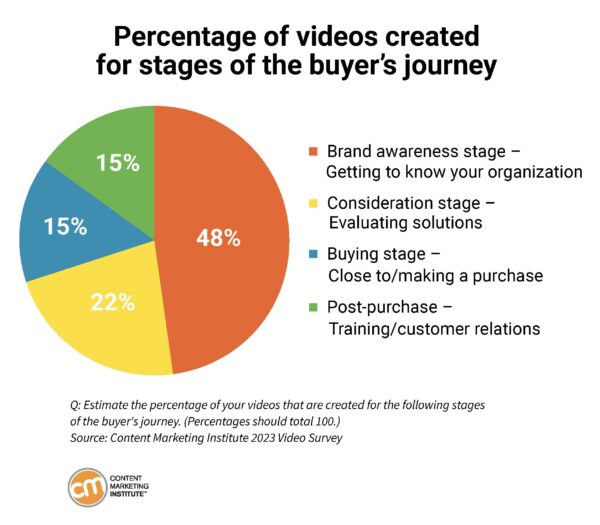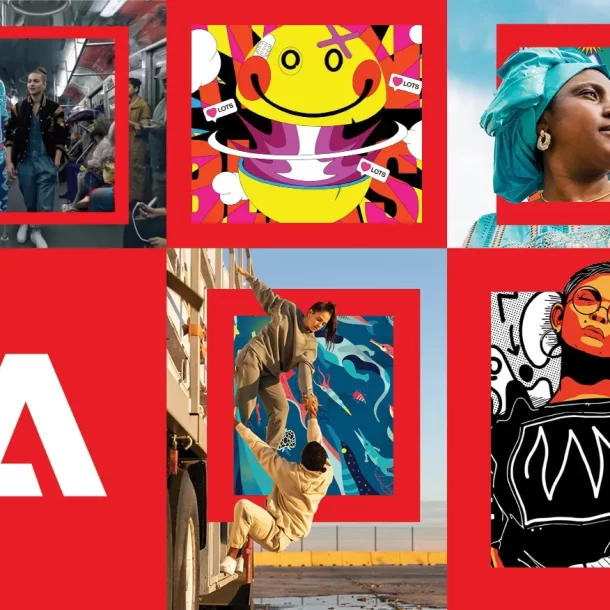Video marketing has become a significant tool for B2B marketers, as indicated in recent research by the Content Marketing Institute. The medium’s storytelling and emotional resonance capabilities are the primary reasons for its widespread use. In the past year, 67% of marketers have found video increasingly crucial for their business, with 32% maintaining its consistent importance, and only 1% perceiving a decrease in relevance.

The usage of video varies among marketers, with the majority utilizing it for branded storytelling (61%), how-to or explainer videos (59%), interviews with experts (54%), and customer-oriented content like case studies and testimonials (51%). Thought leadership content featuring company leaders is also common, with a 51% usage rate. Only less than half of the marketers employ videos for product demonstrations (45%), company/employee stories (41%), external training (24%), livestreaming (24%), and other miscellaneous types (4%).
AI’s role in video creation is still emerging, with only 18% of marketers currently using AI tools in this domain. Nonetheless, 33% of those not using AI plan to adopt it within the next year, although 37% have no such plans, and 30% remain unsure.
Marketers who do use AI primarily apply it for scriptwriting (69%), video editing (34%), and generating videos from existing texts (26%). Other AI applications include creating motion graphics (23%), repurposing existing videos (20%), localization (10%), and various other tasks (17%).

The primary advantage of AI in video creation, as reported by marketers, is time efficiency. However, only 17% believe that AI contributes to higher-quality content, indicating room for improvement in AI’s capability to meet marketers’ standards. Other benefits include simplifying the video production process (59%), cost reduction (47%), increased content variety (41%), reduced manpower requirements (33%), and better management of multiple digital channels (19%).
Video content is predominantly created for brand awareness (48%), with lesser emphasis on the consideration stage (22%), buying stage (15%), and post-purchase phase (15%). This aligns with the belief among B2B demand generation marketers that video is most effective at the funnel’s top.
 The perceived value of video in fostering human connections has risen, with 43% of marketers now recognizing its potential for sharing relatable real-life stories and experiences. Marketers also see video as a tool for informative (35%) and educational (20%) purposes.
The perceived value of video in fostering human connections has risen, with 43% of marketers now recognizing its potential for sharing relatable real-life stories and experiences. Marketers also see video as a tool for informative (35%) and educational (20%) purposes.
However, there’s caution regarding audience preferences. Only 30% of marketers believe their primary audience prefers video over other content types, while 45% observe that their audience watches videos but doesn’t necessarily favor them. Only 5% reported a preference for other content types over video among their audience, suggesting that despite mixed preferences, the value of video remains substantial.
In conclusion, the rising prominence of video in B2B marketing highlights its effectiveness in storytelling and audience engagement, yet it necessitates a balanced approach due to varying audience preferences. The evolving role of AI in video creation, alongside its integration across the customer journey stages, underscores the dynamic and growing impact of video in contemporary marketing strategies.
Sources:
https://contentmarketinginstitute.com/articles/video-content-research/










